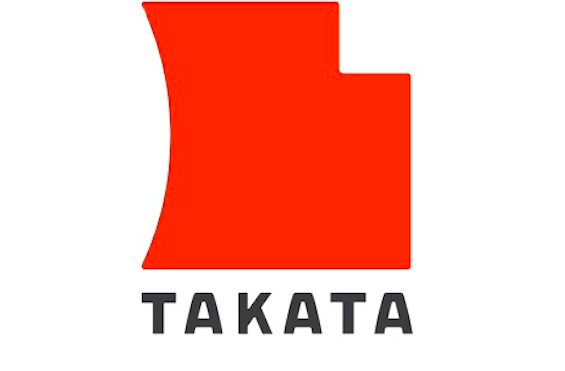34 Million Takata Airbags Declared Defective, More Recalls To Come
 After months of resisting federal regulators’ push for a national recall of vehicles containing defective Takata-produced airbags that could spew shrapnel when deployed, the Japanese auto parts maker announced today that it has declared an estimated 34 million vehicles defective because of the potentially deadly safety devices. The declaration is the first step in what will likely be the county’s largest recall of a consumer product.
After months of resisting federal regulators’ push for a national recall of vehicles containing defective Takata-produced airbags that could spew shrapnel when deployed, the Japanese auto parts maker announced today that it has declared an estimated 34 million vehicles defective because of the potentially deadly safety devices. The declaration is the first step in what will likely be the county’s largest recall of a consumer product.
Takata’s decision was unveiled during a joint announcement with National Highway Traffic Safety Administration head Mark Rosekind and U.S. Transportation Secretary Anthony Foxx.
“Takata has agreed to confirm that Takata airbag inflators are defective,” Foxx said. “It is fair to say this is the most complex consumer recall in U.S. history. The Department of Transportation is taking the proactive steps necessary to ensure that defective inflators are replaced with safe ones as quickly as possible, and that the highest risks are addressed first. We will not stop our work until every air bag is replaced.”
The latest action expands regional recalls of Takata passenger-side inflators, currently limited to areas of high absolute humidity, to nationwide recalls involving more than 16 million vehicles. They also expand the current nationwide recall of driver-side inflators to more than 17 million vehicles.
Prior to Tuesday, Takata-related recalls in the U.S. totaled about 17 million vehicles by 10 different automakers including BMW, Fiat Chrysler, Ford, General Motors, Honda, Mazda, Mitsubishi, Nissan, Subaru and Toyota. Those automakers must now review Takata’s reports to determine which additional vehicles should be recalled.
NHTSA said that the added recalls could take years to finish, and that it expects vehicles will fixed based upon risk. Consumers can find vehicle identification numbers of the affected cars on safercar.gov/recallsspotlight.
Takata’s announcement was preceded by the filing of a series of four defect information reports with NHTSA that declare both driver and passenger airbag inflators defective in more than 33.8 million vehicles; roughly 17 million more than were previously recalled in the U.S., the Detroit News reported.
In all, the defect has been linked to six deaths and 105 injuries.
Despite the expanded recall, Takata, regulators and auto manufacturers have still failed to detect the root cause of the airbag’s tendency to explode with enough force to injure passengers and drivers. Previous reports have pointed to the likelihood that moisture seeping into the device rendered the chemical Takata uses – ammonium nitrate – unstable.
Back in November, Takata sent a senior vice president as the only Takata representative to address a U.S. congressional hearing. At that time Hiroshi Shimizu said the company wouldn’t initiate a national recall despite federal regulators urging to do so. He said the decision was made, in part, because the company doesn’t believe that the National Highway Traffic Safety Administration has the power to order such an initiative and because testing hasn’t shown what’s really behind the issue.
Regulators first opened an investigation into the issue in June 2014 after automakers began recalling millions of vehicles.
In February, the agency began fining the company $14,000 per day for failing to turn over documents and answer questions. Investigators said the fine was a result Takata’s slow pace in working with the agency.
A week later, NHTSA upgraded its probe to an engineering analysis. The regulators said the formal step intensifies the investigation and could help determine whether the company’s failure to quickly notify the agency of possible defects violated federal law or regulations.
Shortly after that, Takata said that it would double its production of replacement airbags over the next six months.
Takata to declare 33.8M vehicles defective [The Detroit News]
Want more consumer news? Visit our parent organization, Consumer Reports, for the latest on scams, recalls, and other consumer issues.

